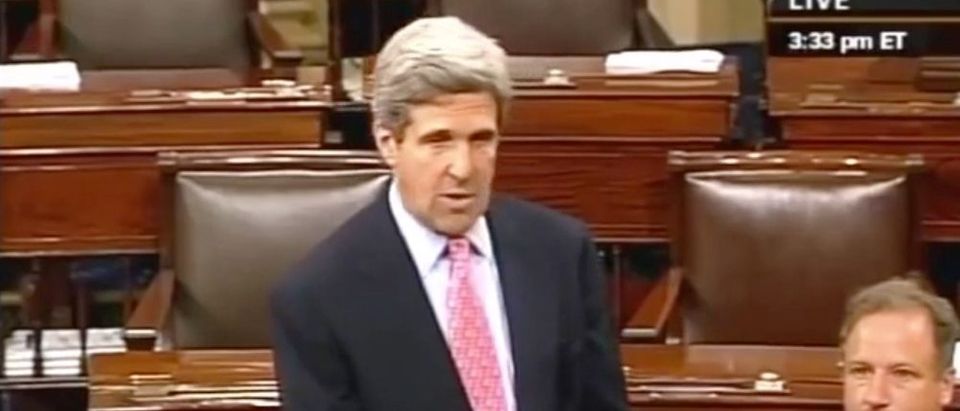Special Presidential Envoy for Climate John Kerry said in 2009 that the Arctic would have its first ice-free summer by 2014.
Kerry, who at the time was serving as the Democratic senator from Massachusetts, criticized Republican Oklahoma Sen. Jim Inhofe on the Senate floor for making comments that he said were “wrong on the facts” or wrong in terms of political judgment.
“I wish he were really up to state of the art with respect to the science on global climate change,” Kerry said. “You have sea ice which is melting at a rate that the Arctic Ocean now increasingly is exposed.” (RELATED: Climate Experts Say Biden’s Infrastructure Plan Filled With ‘Wasteful Spending’ On Green Agenda)
WATCH:
“In five years, scientists predict we will have the first ice-free Arctic summer, that exposes more ocean to sunlight,” he added. “Ocean is dark, it consumes more of the heat from the sunlight, which then accelerates the rate of the melting and warming rather than the ice sheet and the snow that used to reflect it back up into the atmosphere.”
It has now been 12 years since Kerry’s dire prediction, but we still have not seen an ice-free Arctic summer.
Each year, sea ice in the Arctic covers more area when it expands during the winter and covers less area when it melts back during the summer. The amount of summer sea ice in the Arctic has been declining yearly, but not nearly as rapidly as Kerry suggested.
In July of 1980, the ice covered an average of around 3.8 million square miles, according to National Geographic. By July of 2020, the summer ice covered around 2.8 million square miles, representing an average decline of around 27,000 square miles per year. Despite the decline in summer sea ice, the Arctic has never experienced a fully ice-free summer.
Arctic summer ice reaches its lowest point in September before it begins to expand again for the winter. In September of 2014, when the amount of summer ice in the Arctic was at its lowest point, it still covered 1.94 million square miles, according to NASA. Although the amount of summer ice in 2014 was the sixth-lowest recorded since 1978, it’s still nowhere close to the “ice-free Arctic summer” that Kerry predicted.


